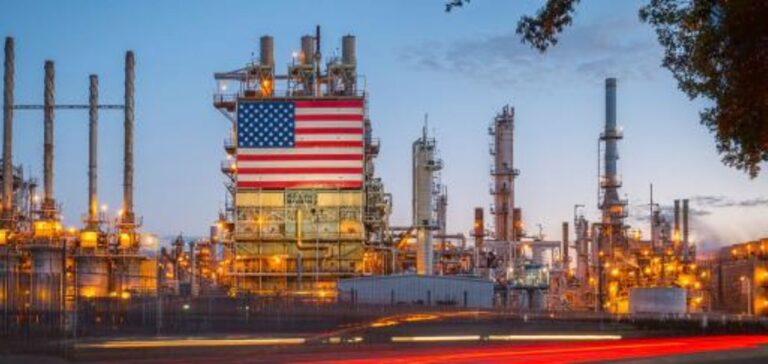Weekly commercial crude oil reserves in the United States fell sharply again last week, more than analysts had expected, but gasoline reserves rose, according to data released Wednesday by the U.S. Energy Information Administration (EIA).
Weekly crude inventories: A sharp drop of 6.1 million barrels, but gasoline reserves on the rise
In the week ending August 18, crude inventories fell by 6.1 million barrels to 433.5 million barrels. Analysts were expecting a smaller decrease of 3 million, according to a Bloomberg consensus. Gasoline reserves, meanwhile, rose by 1.5 million barrels, whereas projections were for a decrease of almost half a million barrels.
“Continued strength in refining activity and crude exports has supported a sharp decline in oil inventories, while the summer peak in refinery operations has led to increased production of gasolines and distillates,” explained Kpler’s Matt Smith.
The refinery activity rate held steady at 94.5%, after 94.7% the week before. Crude oil prices were easing off around 15:00 GMT. Brent North Sea crude oil for October delivery lost 1.07% to 83.11 dollars. Its US equivalent, a barrel of West Texas Intermediate (WTI) for delivery in the same month, the first day of its use as a benchmark contract, was down 0.99% at 78.82 dollars.
U.S. crude production reaches post-pandemic peak, while demand weakens
U.S. crude production stood at 12.8 million barrels per day, “a post-pandemic high”, noted Matt Smith. Exports remained strong at 4.2 million b/d (-341,000 b/d), while imports stood at 6.9 mb/d versus 7.1 mb/d the previous week. The government marginally refilled the strategic reserves, which now stand at 348.9 million barrels, compared with 348.4 million.
Demand fell to 21.16 million barrels per day from 21.66 mb/d the week before. On average over four weeks, an indicator closely followed by operators, deliveries of gasoline, kerosene and distillates were up 4.5% on the same period last year, at 20.894 million barrels per day.






















